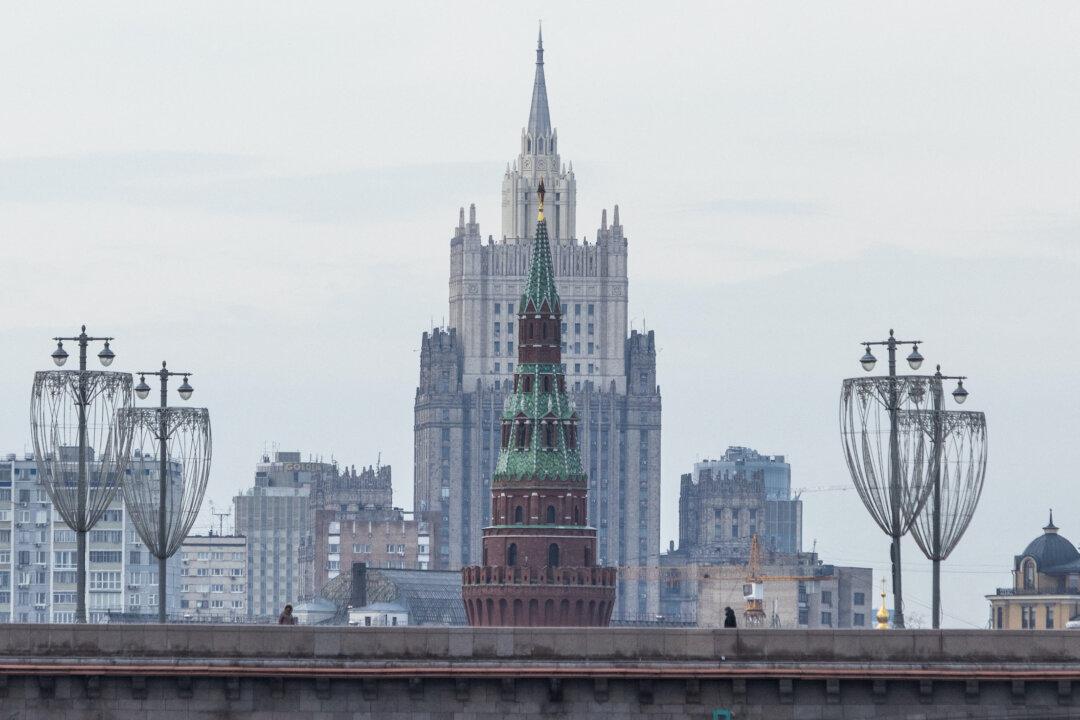
The Russian Foreign Ministry headquarters next to one of the towers of Moscow’s Kremlin, on March 15, 2023. Maxim Shemetov/Reuters
Moscow has denounced Moldova’s decision to declare a Russian diplomat “persona non grata” for reasons that remain unclear.
“These actions are aimed at dismantling Russian-Moldovan relations,” Oleg Vasnetsov, Russia’s ambassador to Moldova,
said on Aug. 1.





